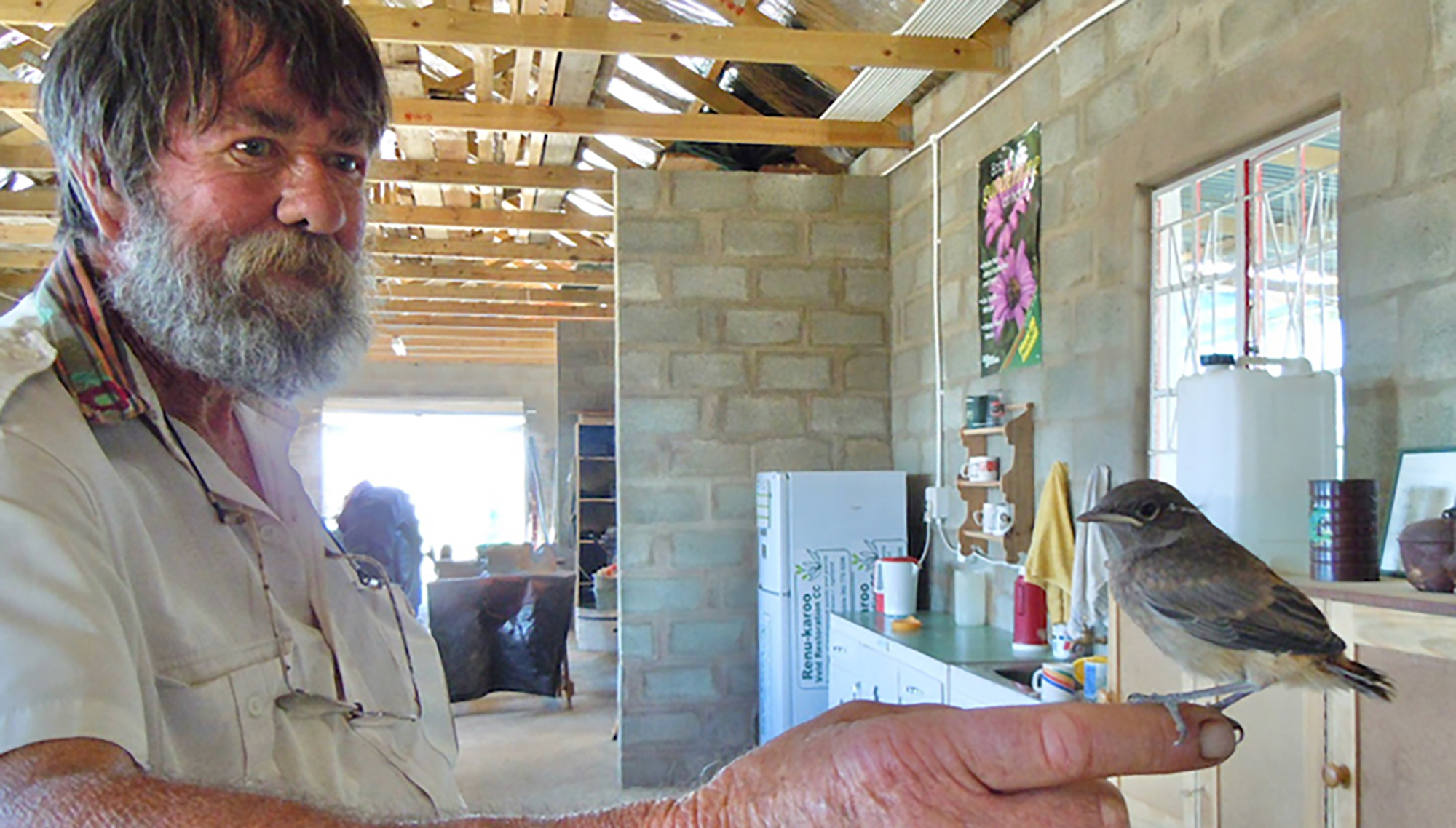Dean died of natural causes last month at the age of 82 after a long career studying and writing about topics both obscure and popular. He was one of the three editors of the titanic edition of Roberts Birds of Southern Africa, and contributed to about 257 scientific publications.
Dean was a well-known, heavily bearded figure in the Karoo, providing farmers with advice on ecological and environmental issues with his wife and scientific partner Sue Milton-Dean. Dean said her husband lived a life “driven by curiosity” which extended not only to the natural sciences but also to making cars, furniture and boats. He raced motorbikes as a young man, “the only thing about him I couldn’t relate to”, says Dean.
But birds were his passion from childhood. In 1971 he eagerly escaped the printing industry to take up his first job in ornithology as a field ornithologist for the Peabody Museum of Natural History at Yale University, based at the McGregor Museum in Kimberley, collecting specimens in Cabinda in Angola, Namibia, Zimbabwe and South Africa.
His career took him to the Barberspan Ornithological Research Station, ringing ducks and other waterfowl, and studying aspects of the biology of several aquatic birds. He was then recruited to set up the Tzaneen Nature Reserve in 1978, moving to the Nylsvley Nature Reserve (site of the Savanna Biome Project) the following year, where he met Sue, a student botanist working on the reserve.
After resigning this post at Nylsvley, he was employed in 1983 by the Transvaal Museum to sort and catalogue the collection of birds’ eggs at the museum (now the Ditsong National Museum of Natural History) and then set out to become a builder of wooden boats in Knysna.
Richard and Sue subsequently moved to Prince Albert in 1987 to develop and manage a long-term ecological research station on the farm Tierberg for the National Research Foundation and University of Cape Town. Over the years he investigated topics as diverse as ant and spider behaviour; cicada biology; bird-plant interactions; fluctuations in the densities of birds in rangelands lightly and heavily grazed by domestic livestock; seed dispersal by birds; and collaborated with modellers to understand the movements of nomadic birds in the Karoo.
Beyond the Karoo, he studied albatrosses and other birds on Inaccessible Island (Tristan da Cunha group), South Atlantic Ocean, and was a guest scientist in Leipzig, Germany, where he documented the return of biodiversity to old agricultural lands and abandoned cherry orchards.
He raised funding from the Leverhulme Trust to visit museums in the UK, France and Germany to document and publish details of all southern African birds in these collections. Despite the lack of an undergraduate degree, and because of his experience as a bird collector and his published research on birds, he was allowed to register for a postgraduate degree, completing a Master of Science in 1991 with the University of Natal (now UKZN). He was awarded a PhD in 1995 from UCT. In March 2009 he was awarded the Gill Memorial Medal for lifetime service to ornithology south of the Zambezi. From 2000 until 2006 he served as editor of Ostrich (the ornithological journal published by BirdLife South Africa).
Richard’s scientific publications include a synthesis of research in the Karoo, a monograph on the birds of Angola, a book on nomadic desert birds, as well as a book on the history of bird collecting in southern Africa, and he co-authored a farmers’ guide to management and ecology of Karoo rangelands. He liked to say that in his world, he reached the top of the mountain.
In Prince Albert, he and Sue founded a non-profit organisation to protect the natural and cultural environment on Wolwekraal Nature Reserve, and a small business, Renu-Karoo Veld Restoration, to provide a plant nursery and veld seeds.
After his retirement, he remained a research associate of UCT’s Percy FitzPatrick Institute and the South African Environmental Observation Network, and continued research gathering data on the historical distribution of birds in southern Africa, conducting various small studies, including regular waterbird counts and bird community studies in Prince Albert, as well as writing for the local newspaper, The Prince Albert Friend.
His students, colleagues and friends remember him for his enthusiasm, insight as a scientist, his enquiring mind, mentorship, his dry sense of humour, and as a gentle, considerate and ethical person who hated injustice.
He leaves his daughter Deborah Camilleri and grandson Joe in Australia, his son Robin Dean and grandchildren Jessica and Matthew in England, his sister Trudy Brain and his wife Sue. DM
This article is more than 3 years old
South Africa
Karoo mourns the death of renowned ornithologist and scientist Richard Dean
Ornithologist and natural historian Richard Dean was instrumental in scientific research on a wide range of fauna and flora, including birds, ants and cicadas.




